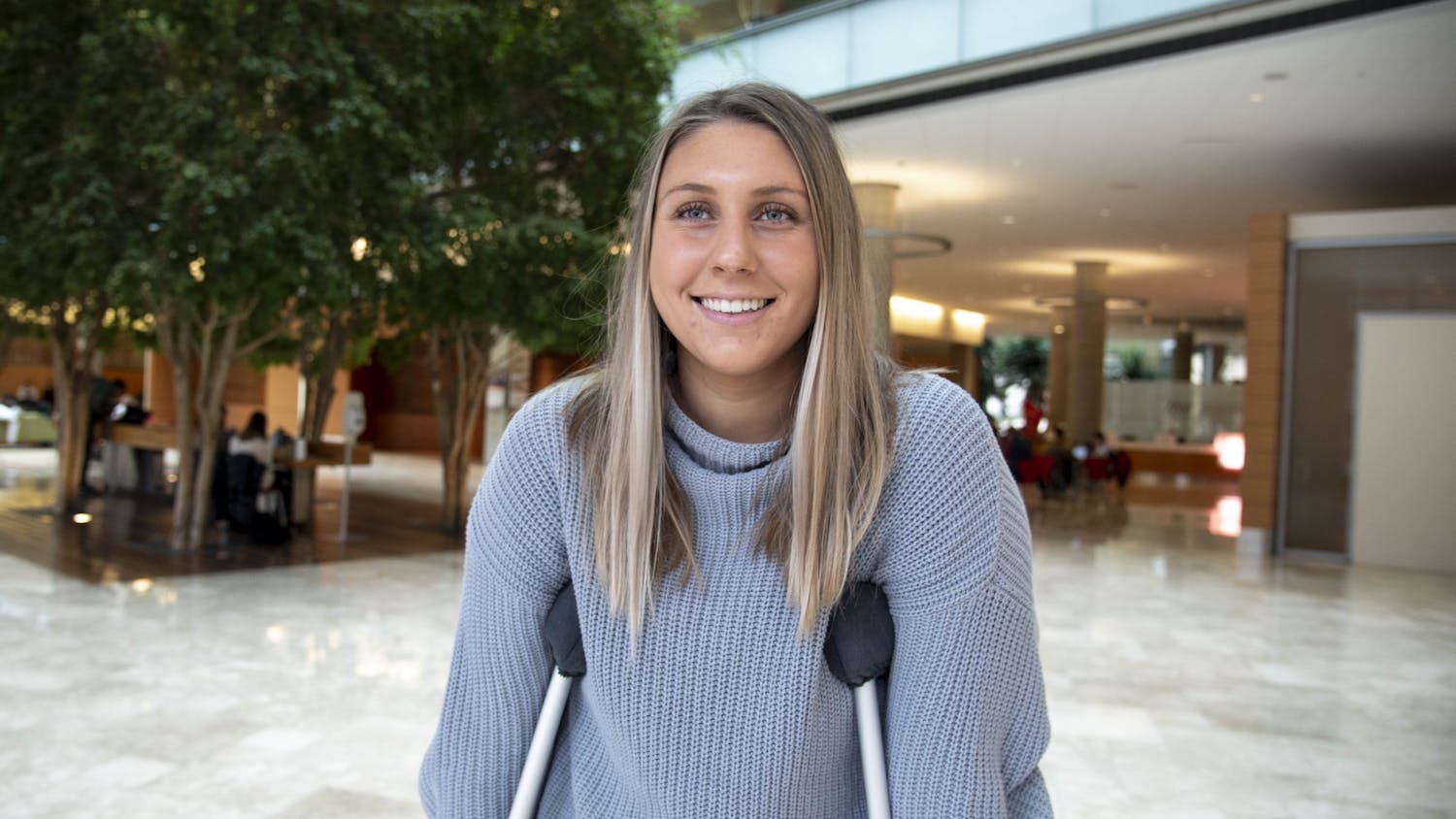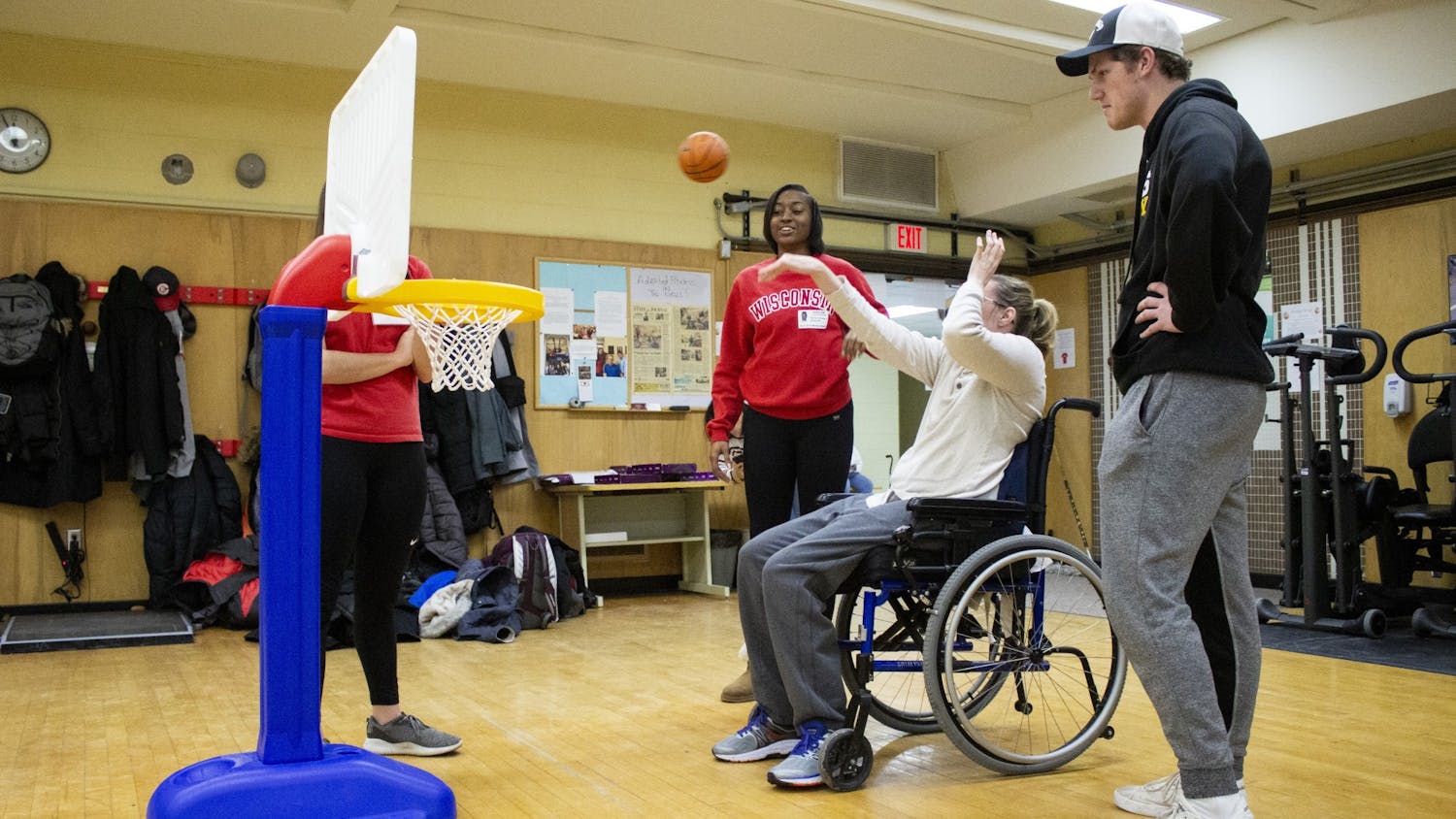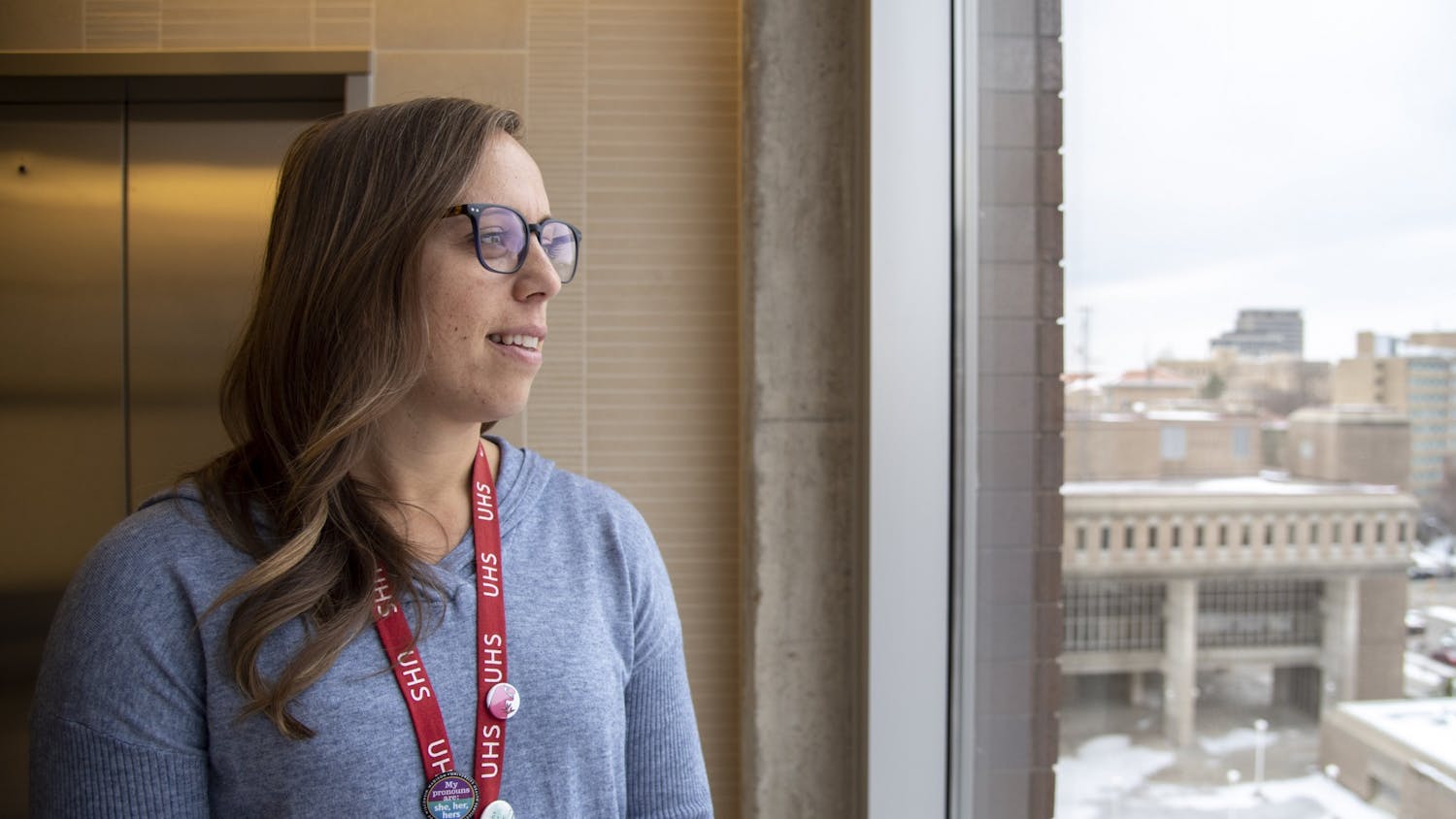Pizza? Salad? Sandwich?
A similar thought process usually goes through people’s minds when considering where to go for lunch, along with what you’re craving, how far away different restaurants are, how much time you have, how much money you’re willing to spend.
But for many people, where to go for lunch depends on whether the restaurant requires stairs to access it.
For Bella Sobah, the chair of Madison’s Disability Rights Commission, this is something she must take into consideration as a woman in a wheelchair with spinal muscular atrophy. And it’s something that she wants other people to be aware of too.
When asked what she wished Madison residents knew about the Disability Rights Commission, Sobah responded, “I wish they knew that we existed.”
Sobah is also a third-year law student at UW-Madison. She’s been a member since 2017 and has served as chair for the past year.
“I don’t know [if] a lot of people know we are another resource for voicing your concerns, and anyone is free to come to our meetings and make comments,” Sobah said. “I wish people took more advantage of that.”
The Disability Rights Commission consists of 12 citizen members and one Common Council member. They work to recommend policy to the Mayor, Common Council and Department of Civil Rights, as well as studying and making suggestions to all City departments, committees and commissions.
“Our goal is to look at policies that are put forward and analyze them through the lens of how this could affect a person with a disability,” Sobah said. “Also to hear concerns from the community with regards to the disability community and trying to address those concerns in the city.”
The Disability Rights Commission recently met with Downtown Madison, Inc. about how to address a lack of accessibility in the downtown area. They conducted a survey to gather feedback from community members about what they perceive to be the city’s biggest hindrances to accessibility.
“A lot of the feedback we got was about parking and the lack of accessible parking in the downtown area,” Sobah said. “A lot of businesses do have steps and are physically inaccessible.”
Additionally, much of the feedback from the survey pointed to a lack of accessibility at Madison’s community events — specifically outdoor festivals, according to Sobah. Many festivals lack accessible outdoor bathrooms and are on grassy areas, making it hard to maneuver for some.
While Sobah considers Madison to be generally a disability-friendly city, one of the main goals of the commission is to encourage private businesses to be more accessible through a new initiative called the Access Madison Campaign.
The campaign was designed to help local businesses see the challenges posed against those with disabilities, according to Eric Koch, a commissioner on the Disability Rights Commission.
“We're hoping that it will help businesses make small changes that can make a huge difference for folx with disabilities,” Koch said.
One of the goals of the Access Madison Campaign is to raise the public’s awareness of the Disability Rights Commission altogether by highlighting some of its work.
“As we get more work on it and have some more concrete proposals out there, we hope that members of the public see that work that we're doing,” Koch said.
The commission is considering offering a sort of reward to acknowledge businesses that go above and beyond what the Americans with Disabilities Act requires. Sobah hopes that by rewarding buildings with accommodations it will incentivize other businesses to do the same.
“It’s hard because we have more authority over city events rather than private businesses,” Sobah said. “Another thing that we started to do is figure out how to incentivize businesses to become more accessible and to figure out ways to strategize that.”
Over the past few months, one of the most pressing issues for the commission has been working with city officials to offer recommendations to a proposed city ordinance on plastic straws.
The goal of the ordinance is to reduce single-use plastics to be more sustainable in the city, and would fine restaurants for providing plastic straws without a customer asking for one first.
But for many people with disabilities, including Sobah, straws are relied on for drinking.
The Disability Rights Commission voted in September not to support the first draft of the ordinance. The commission instead offered an amendment to specify language and therefore shift the burden of having to ask for a straw off of the consumer, Sobah said.
The amendment proposed by the Disability Rights Commission changed the requirement of a customer asking for a plastic straw to instead say that wait staff must first confirm with the customer before providing one.
“Our main concern is that there are a lot of people who do feel stigmatized when there is a lot of rhetoric surrounding the use of plastic straws being harmful to the environment,” Sobah said. “It kind of feels like you are doing something wrong by asking for something that you need. Hopefully, this will eliminate another obstacle that people with disabilities face in the community.”
Sobah said she felt encouraged that the straw ordinance was brought directly to the Disability Rights Commission for comments. The commission is hopeful that all city committees and commissions who create ordinances that may affect those with disabilities will do the same.
“The great thing about Madison is that it feels like people are willing to listen when we do say ‘Hey, this isn't great for people with disabilities,’” Sobah said. “There is a willingness to at least sit-down and address those things.”






